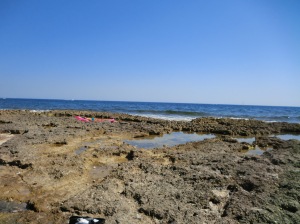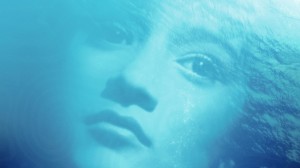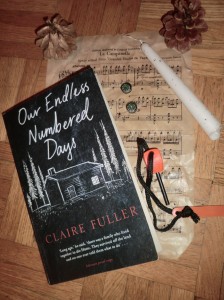This is Claire Fuller’s third book and is as engaging as her previous two, her unforgettable debut Our Endless Numbered Days which slowly unravels the story behind a 17-year-old girl who is back with her family after she went missing for nine years and last years Swimming Lessons, which also involved a mysterious disappearance, but was more of a portrait of a marriage.
 Bitter Orange is less mysterious and though it is set in 1969, it has something of the feel of a timeless classic, with its setting in a dilapidated English mansion, with two characters employed by the new, absent owner to make a report on the inventory and architecture of the interior and garden, people interested in old things from the past, haunted by them in fact.
Bitter Orange is less mysterious and though it is set in 1969, it has something of the feel of a timeless classic, with its setting in a dilapidated English mansion, with two characters employed by the new, absent owner to make a report on the inventory and architecture of the interior and garden, people interested in old things from the past, haunted by them in fact.
The book opens with Frances, unmarried, twenty years after certain events, as she is nearing the end of her life, recounting moments of that summer she spent at the country house to a vicar, the same vicar who was present that summer, witness to some but not all of what occurred. He seems eager to fill in the missing details, to elicit a confession of sorts, while there is still the opportunity.
Frances was there to document details about what was believed might be a Palladian bridge, however it was so overgrown, that she wasn’t convinced there was anything of interest beneath the plant life that was strangling the edifice.
 Once settled into her attic room, France spies her housemates, Cara the carefree young woman, who it soon becomes clear is tormented by something and Peter the older lover of antiquities, a man who more than admires, wishes to possess all that he finds alluring.
Once settled into her attic room, France spies her housemates, Cara the carefree young woman, who it soon becomes clear is tormented by something and Peter the older lover of antiquities, a man who more than admires, wishes to possess all that he finds alluring.
Though Frances feels like an outsider around this couple, largely friendless having spent years looking after her elderly mother, she responds with great pleasure and anticipation to their invitations and soon the three of them abandon their responsibilities and spend their days like summer guests, plundering the champagne stocks they’ve discovered, picnicking and enjoying the fruits and uncovered fortune of the environment they’ve occupied just like the armies that came before them.
The longer they spend together, the more it is obvious to Frances that their stories don’t correlate and that something is not right. Rather than confront them, she wants to continue being part of the trio they’ve become, a mistake that will cost her dearly.
In their unobserved curiosity, they cross forbidden boundaries, they participate in and witness activities that entangle their lives, pushing them over the edge from minor misdemeanors into irreconcilable behaviours that will change their lives forever.
 For me, it didn’t have the same captivating atmosphere, characterisation and thought-provoking aspects present in Swimming Lessons, which is my favourite of the three books and was a five-star read for me last year, however it excels in demonstrating the murky depths of people, who are often not what they seem on the surface, and even when unravelled and revealed may not be telling things as they really are or were. Yes, watch out for the unreliable narrator,.
For me, it didn’t have the same captivating atmosphere, characterisation and thought-provoking aspects present in Swimming Lessons, which is my favourite of the three books and was a five-star read for me last year, however it excels in demonstrating the murky depths of people, who are often not what they seem on the surface, and even when unravelled and revealed may not be telling things as they really are or were. Yes, watch out for the unreliable narrator,.
Fuller succeeds in penetrating the dark, murky aspects of character in a disturbing ending that surprises, given the elevated perception they have tried to portray themselves as, until that bewitching, bitter end.
N.B. Thank you to the publisher for sending me a copy.

 Three Daughters of Eve is an interesting, quietly provocative, philosophical novel. Shafak brilliantly sets up a character study of Peri, our Turkish protagonist, who on her way to a dinner party to meet her husband, decides to abandon her car in the middle of a traffic jam, in pursuit of an opportunistic handbag thief.
Three Daughters of Eve is an interesting, quietly provocative, philosophical novel. Shafak brilliantly sets up a character study of Peri, our Turkish protagonist, who on her way to a dinner party to meet her husband, decides to abandon her car in the middle of a traffic jam, in pursuit of an opportunistic handbag thief.



 Despite education, philosophical questions and new friends, Peri is a young, Turkish woman coming to live in a foreign country; as I was reading, I couldn’t help but notice the synchronicity between this combination of time, space and circumstance that made Peri vulnerable to manipulative intent and the protagonist of Claire Fuller’s excellent novel
Despite education, philosophical questions and new friends, Peri is a young, Turkish woman coming to live in a foreign country; as I was reading, I couldn’t help but notice the synchronicity between this combination of time, space and circumstance that made Peri vulnerable to manipulative intent and the protagonist of Claire Fuller’s excellent novel 
 Swimming Lessons is an evocative, thought-provoking novel that begins with an intriguing mystery, evolving into melancholy as the events before and during Ingrid’s marriage, the wife of Gil and mother of two young girls who disappeared 12 years before, are revealed.
Swimming Lessons is an evocative, thought-provoking novel that begins with an intriguing mystery, evolving into melancholy as the events before and during Ingrid’s marriage, the wife of Gil and mother of two young girls who disappeared 12 years before, are revealed. After Gil’s sighting, events bring the family together, highlighting their similarities and differences, exposing various family secrets and lies and all the while, each letter like a dripping tap, one by one revealing more of the relationship between Ingrid, the young Norwegian university student and Gil, her literature professor and the very different path her life would take once their lives intertwined.
After Gil’s sighting, events bring the family together, highlighting their similarities and differences, exposing various family secrets and lies and all the while, each letter like a dripping tap, one by one revealing more of the relationship between Ingrid, the young Norwegian university student and Gil, her literature professor and the very different path her life would take once their lives intertwined.





